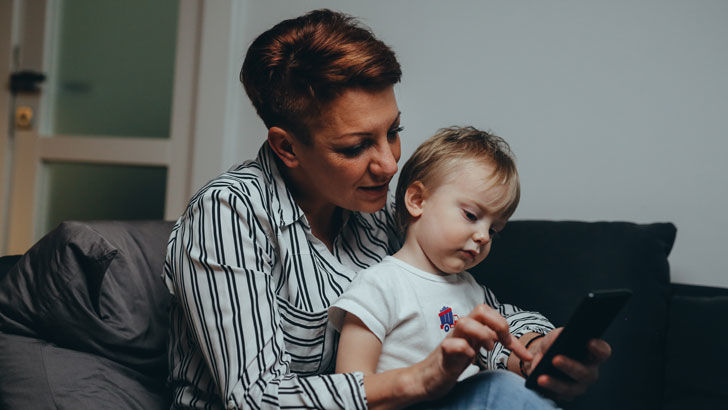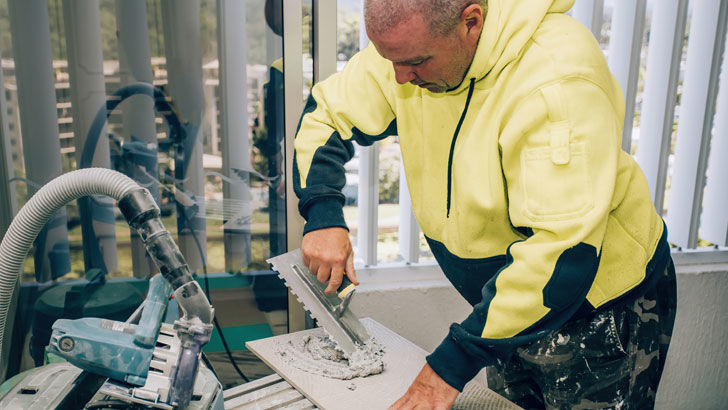'Jobs, jobs, jobs': What you need to know about the Federal Budget
By Darren Snyder, Julia Newbould
Treasurer Josh Frydenberg says Australia's Budget faces the most severe "economic crisis since the Great Depression". So just how far are we away from recovery?
COVID-19 means the Australian government had to spend, spend and spend - to the tune of a $213.7 billion Budget deficit this year. And if economic conditions improve, the government forecasts the Budget deficit to reduce to $49.5 billion by 2030-31.
To fund this spending the government has and will have to borrow, borrow and borrow - meaning the country's net debt is forecasted to peak at $966 billion (44% of GDP) in June 2024. Albeit this borrowing is at record low interest rates.
The largest caveat with Budget 2020 is the assumption there's a global vaccine for COVID-19 made available in Australia from late 2021.
Jobs, jobs and more jobs
In the short term, though, the Treasurer has made it clear that the way out of a recession and global pandemic is to put Australia back to work.
"There is no economic recovery without a jobs recovery. There is no budget recovery without a jobs recovery," says Frydenberg.
"More than half of those who lost their job [as a result of Covid-19] are back at work."
Young people, women, small businesses are all targets of the new job creation measures expected to result in one million new jobs.
Starting immediately, employers will receive a JobMaker incentive payment (payable for up to 12 months) for hiring someone aged 16-35 currently on JobSeeker.
It will be paid at the rate of $200 per week for those aged under 30, and $100 per week for those aged between 30 and 35.
The employees must work for at least 20 hours a week and all businesses, other than the major banks, will be eligible for JobMaker.
Treasury estimates that this will support around 450,000 jobs for young people, many at a minimum wage.
"Having a job means more than earning an income, it means economic security, it means independence, it means opportunity," the Treasurer says.
It is estimated that two million Australians lost their JobKeeper payments this week and those who are retaining the payment will see their payment fall from $1500 to $1200 (for those working more than 20 hours a week) until December and then reduced to $1000 until March 2021.
Those working less than 20 hours saw a reduction to $750 from September to December and then to $650 until March 2021.
Many people who lost their JobKeeper payments are expected to have registered for JobSeeker.
While the JobKeeper program was extended a further six months from September, Frydenberg says it will make a decision on JobSeeker closer to the end of the year.
There was also no plan to lift the permanent rate of JobSeeker from $40 a day.
Apprentices and trainees
Small and medium sized businesses with fewer than 200 employees will be eligible to apply for a wage subsidy of 50% of an apprentice's or trainee's wage paid from July 1, 2020 to March 21, 2021, up to a cap of $7000 per quarter.
According to Treasury, this will support around 90,000 businesses employing around 180,000 apprentices.
Previously a JobTrainer fund was announced to create up to 340,000 free or low-cost training places for school leavers and job seekers.
New higher education short courses will be provided in agriculture, health, IT, science and teaching.
New cadetships and apprenticeships were also announced particularly targeting women in science, technology, engineering and maths.

Tax cuts
The Treasurer predicts that tax cuts to more than 11 million taxpayers (backdated to July 1) will give Australians "more of their own money to spend on what matters to them, generating billions of dollars of economic activity and creating 50,000 new jobs."
Exactly how the tax cuts will create new jobs is not entirely clear. However, the government is expanding the Instant Asset Write Off, meaning more than 99% of businesses can write off the full value of any eligible asset they purchase for their business. It's available for businesses with a turnover of up to $5 billion until June 2022.
"A trucking company will be able to upgrade its fleet, a farmer will be able to purchase a new harvester and a food manufacturing business will be able to expand its production line," says Frydenberg.
"This will boost the order books of the nation."
Six national manufacturing priorities announced are: food and beverage manufacturing, resources technology and critical minerals processing, medical products, recycling and clean energy, defence and the space industry.
Further, business losses incurred to June 2022 can be offset against prior profits made in or after the 2018-19 financial year. The Treasurer says the combination of the immediate expensing and loss carry-back measures will create tens of thousands of jobs across the country.
Housing
The federal government is positioning its extension of the First Home Loan Deposit Scheme as another way to create and save jobs, as well as boost home ownership in a stressed economy. But will it have its desired effect?
Ten thousand additional first home buyers will be able to access the First Home Loan Deposit Scheme (FHLDS), allowing them to get into their first home with a deposit as small as 5%. The new places will be available from today until June 30 next year.
Frydenberg says the scheme's extension "will help to support all our tradies right through the supply chain including painters, builders, plumbers and electricians".
Unlike the first iteration of the scheme, the extended FHLDS is for loans on newly constructed properties only. And this is where the policy falls flat, says the Real Estate Institute of Australia (REIA).
REIA president Adrian Kelly says the announcement ignored the market preferences of Australian first home buyers.
"Historically we have seen that less than 20% of Australian first home buyers buy new homes," he says. "Over 80% of Australian first home buyers purchase established dwellings.
"In more recent times even fewer small home buyers are choosing new dwellings."
The government is investing $150 million over three years in the Indigenous Home Ownership Program for new homes in regional Australia. It says this will help indigenous Australians into home ownership and support the construction sector in the regions.

Health insurance
From tonight the federal government will spend $19.5 million over four years to improve access to and affordability of private health insurance. This includes increasing the maximum age of dependents allowed under private health insurance policies from 24 to 31 years, and removing the age limit for dependents with disability.
Members Health, the peak body for 26 not-for-profit and member owned private health insurers, has welcomed Budget.
"Minister Greg Hunt's reforms will make an enormous difference, especially to the lives of younger Australians and for those with disabilities," says Members Health chief executive Matthew Koce.
"Young people are doing it tough. Lifting the age for dependents on family policies, from 24 to 31, could save them thousands of dollars a year at a time of life when cost-of-living pressure start to bite.
"That's money that could go towards paying off HECS and university debt, a deposit for a first home or towards raising a family.
Koce says the announcement of a road map to boosting out-of-hospital care, from April next year, is another excellent initiative that will "improve the efficient delivery of healthcare for Australian families."
"Many patients would much prefer to receive care at home rather than in hospital and much better patient outcomes are achievable," he says.
The government's $17 million investment into further enhancing the Medical Cost Finder website to empower consumers around choice of specialist, is an important step towards improving transparency and addressing out-of-pocket costs, says Members Health.
Mental health
The government will spend $100.8 million over two years from today to ensure people with a mental health care plan can access up to 10 additional Medicare-subsidised individual psychological therapy sessions. It's a doubling of current sessions.
"Around seven million Medicare subsidised mental health services have been delivered since March," says Frydenberg.
"We are doubling the number of Medicare funded psychological services through the Better Access Initiative, from 10 to 20.
"We are providing more funding for Lifeline, headspace, Beyond Blue and Kids Helpline. We are providing support for more young Australians with a mental illness to help them participate in the workforce."
These initiatives bring mental health support to $5.7 billion this year, says the Treasuer.
In response to the second COVID-19 wave in Victoria, the government has provided a further $47.3 million to ensure Victorians have the mental health support they need, says Frydenberg.
This includes additional funding for digital and telephone counselling, which will provide access to 24/7 services particularly for young people and vulnerable populations. Fifteen dedicated mental health clinics will also be established across Victoria, with nine clinics in greater Melbourne and six in regional Victoria. These clinics will provide immediate coordinated mental health care.

Aged pension and aged care
Aged pensioners have been supported in the 2020 Budget with an additional $250 payment in December and a further $250 payment from March next year. This is on top of the $750 payments in April and July this year.
Frydenberg also promised $1.6 billion for senior Australians who want to keep living at home, announcing 23,000 additional home care packages.
"Ninety-nine per cent of all those seeking an in-home aged care package now have access to some form of in-home support," says Frydenberg.
"We are also investing more in this Budget to improve skills in the aged care workforce and provide additional dementia training and support.But we know there is still more to be done."
Get stories like this in our newsletters.




